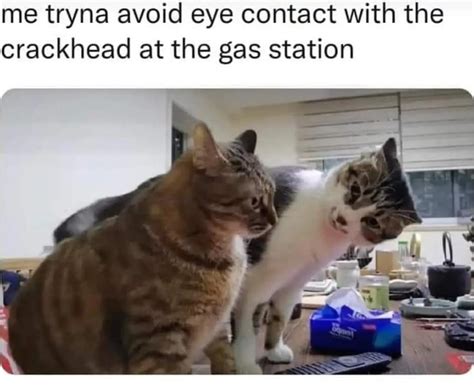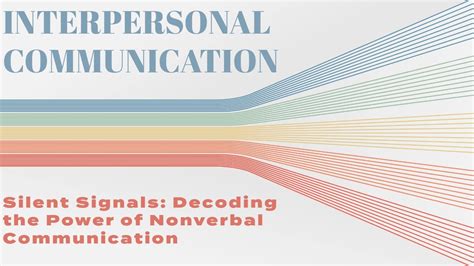
Spotting subtle cues of dislike can be challenging, but recognizing nonverbal communication, like limited eye contact, closed-off body language, and terse replies, can reveal hidden feelings of aversion.
Navigating social interactions often involves deciphering subtle cues and unspoken signals. While direct confrontation is rare, individuals often communicate their feelings through nonverbal behaviors. Recognizing these subtle signs can help you understand if someone dislikes you, potentially mitigating awkward situations and fostering healthier relationships. According to recent research, identifying these behaviors early can lead to more effective communication strategies and improved interpersonal dynamics.
Subtle Signals of Dislike: Decoding Nonverbal Cues
One of the most telling signs of dislike lies in nonverbal communication. These cues, often unconscious, provide insights into a person’s true feelings.
-
Limited Eye Contact: Eye contact is a fundamental aspect of human connection. When someone avoids looking you in the eye, it can indicate discomfort, disinterest, or even dislike. “Consistent avoidance of eye contact can signal discomfort or a desire to disengage from the interaction,” notes relationship expert Dr. Lillian Glass. This behavior is especially noticeable if the person makes eye contact with others but consistently avoids it with you.
-
Closed-Off Body Language: Body language speaks volumes. Crossed arms, hunched shoulders, and a turned-away posture all suggest defensiveness or disinterest. If someone consistently presents a closed-off posture when interacting with you, it may be a sign of dislike. According to psychologist Dr. Ronald Riggio, “Body language cues are often more honest than verbal communication, as they are less consciously controlled.”
-
Brief and Terse Replies: The quality of communication is just as important as the quantity. Short, curt responses lacking enthusiasm or detail can indicate a lack of interest or even annoyance. If someone consistently offers minimal responses to your questions or comments, it may be a sign they do not enjoy engaging with you.
-
Lack of Enthusiasm: Enthusiasm is contagious and a key component of positive interactions. A person who dislikes you may show a noticeable lack of excitement or interest in your presence. They might not smile, laugh, or actively participate in conversations when you are around.
-
Physical Distance: Personal space is a crucial aspect of interpersonal relationships. Someone who dislikes you may consciously or unconsciously increase the physical distance between you. They might stand further away during conversations, avoid sitting next to you, or create barriers using objects like bags or notebooks.
-
Infrequent Communication: In today’s digital age, communication patterns can be revealing. If someone consistently avoids initiating contact, responds slowly to messages, or offers excuses for not being able to meet, it may be a sign of dislike. The frequency and quality of communication reflect the level of interest and connection between individuals.
-
Dismissive Behavior: Dismissing your opinions, ideas, or contributions in a conversation is a clear sign of disrespect and dislike. This behavior can manifest as interrupting you, talking over you, or ignoring your input altogether. Psychologist Dr. Signe Whitson explains that “Dismissive behavior is a form of emotional invalidation that can damage relationships and erode self-esteem.”
-
Subtle Insults or Backhanded Compliments: While some individuals may be direct in their dislike, others resort to more subtle tactics. Backhanded compliments, disguised as praise but containing an underlying insult, are a common way to express negativity. Similarly, subtle insults or sarcastic remarks can indicate hidden animosity.
-
Avoiding Personal Topics: When someone dislikes you, they are less likely to engage in personal conversations or share details about their life. They may steer clear of topics that require vulnerability or emotional connection, preferring to keep interactions superficial.
-
Forgetting Details: People tend to remember details about those they care about. If someone consistently forgets important information you have shared, such as your birthday, job title, or personal stories, it may be a sign of indifference or dislike. This behavior can be particularly hurtful if the person remembers details about others but not about you.
-
Negative Gossip or Criticism: While not always directed at you, negative gossip or criticism can indicate a person’s overall negativity and potential dislike. If someone frequently speaks negatively about others, they may also harbor negative feelings towards you, even if they do not express them directly.
-
Contradictory Actions: Pay attention to whether a person’s actions align with their words. Someone may verbally express politeness or agreement but behave in ways that contradict their words. Inconsistencies between words and actions can reveal underlying feelings of dislike.
Analyzing Interaction Patterns
Beyond individual cues, analyzing interaction patterns can provide a broader understanding of someone’s feelings towards you.
-
Inconsistent Behavior: Does the person treat you differently than they treat others? Inconsistency in behavior can be a significant indicator of dislike. If someone is warm and friendly with others but cold and distant with you, it may be a sign of personal aversion.
-
Exclusion from Social Activities: Being consistently excluded from social gatherings, meetings, or informal events can be a painful sign of dislike. While occasional oversights may occur, a pattern of exclusion suggests a deliberate attempt to distance you from the group.
-
Lack of Reciprocity: Relationships are built on reciprocity. If you consistently initiate contact, offer support, or extend invitations without receiving anything in return, it may be a sign that the other person is not invested in the relationship.
-
Gauging Group Dynamics: Observe how others interact with you in a group setting. If one person consistently undermines your contributions, ignores your comments, or attempts to isolate you, it may be a sign of dislike.
The Psychology Behind Dislike
Understanding the psychological factors that contribute to dislike can provide valuable insights.
-
Personality Clashes: Sometimes, personalities simply clash. Differences in values, communication styles, or worldviews can lead to friction and dislike.
-
Jealousy or Envy: Success, talent, or positive qualities can trigger feelings of jealousy or envy in others. These feelings can manifest as dislike or resentment.
-
Past Conflicts: Unresolved conflicts or negative experiences can create lasting animosity. Even if the conflict occurred long ago, lingering resentment can affect current interactions.
-
Prejudice or Bias: Unconscious biases or prejudices can influence how we perceive and interact with others. These biases can lead to unfair judgments and unwarranted dislike.
-
Projection: Projection is a psychological defense mechanism in which individuals attribute their own unacceptable thoughts, feelings, or motives to another person. For example, someone who is insecure about their own intelligence may project this insecurity onto you by criticizing your ideas or belittling your accomplishments.
Strategies for Addressing Dislike
If you suspect someone dislikes you, consider these strategies for managing the situation:
-
Self-Reflection: Before jumping to conclusions, examine your own behavior. Are you inadvertently contributing to the negative dynamic? Are there areas where you could improve your communication or interpersonal skills?
-
Direct Communication: In some cases, a direct conversation may be necessary. Approach the person calmly and respectfully, expressing your observations and seeking clarification. “Open communication is key to resolving misunderstandings and fostering healthier relationships,” advises Dr. Susan Heitler, a relationship expert.
-
Setting Boundaries: If the person’s behavior is disrespectful or harmful, set clear boundaries. Communicate your limits and enforce them consistently.
-
Limiting Interaction: In some cases, the best course of action is to limit your interaction with the person. Minimize contact and focus on building relationships with those who support and value you.
-
Seeking Support: Talk to trusted friends, family members, or a therapist about your concerns. Seeking support can provide perspective, validation, and coping strategies.
-
Focusing on What You Can Control: You cannot control how others feel or behave. Focus on controlling your own reactions and maintaining your self-esteem.
Cultural Considerations
It is important to consider cultural norms and expectations when interpreting social cues. Behaviors that are considered rude or disrespectful in one culture may be perfectly acceptable in another. For example, direct eye contact is highly valued in Western cultures but may be considered aggressive or challenging in some Asian cultures.
Professional Implications
Dislike in the workplace can have significant professional implications. Negative relationships can affect productivity, morale, and job satisfaction. If you are experiencing difficulties with a colleague or supervisor, consider seeking guidance from HR or a professional mediator.
Impact on Mental Health
Feeling disliked can take a toll on mental health. Constant exposure to negativity can lead to feelings of anxiety, depression, and low self-esteem. It is important to prioritize your mental well-being and seek professional help if needed.
The Importance of Emotional Intelligence
Emotional intelligence, the ability to understand and manage your own emotions and the emotions of others, is crucial for navigating social interactions. Developing your emotional intelligence can help you better interpret social cues, manage conflict, and build stronger relationships.
Building Resilience
Resilience, the ability to bounce back from adversity, is essential for coping with dislike. Building resilience involves developing coping skills, seeking support, and maintaining a positive outlook. Remember that not everyone will like you, and that is okay. Focus on building strong, supportive relationships with those who value and appreciate you.
Avoiding Assumptions
It is important to avoid making assumptions about why someone might dislike you. There may be factors at play that you are not aware of. Instead of jumping to conclusions, focus on observing behavior and gathering information.
Giving the Benefit of the Doubt
Whenever possible, give people the benefit of the doubt. Sometimes, behavior that appears to be dislike is simply the result of stress, misunderstanding, or miscommunication.
The Power of Kindness
Even if you suspect someone dislikes you, treating them with kindness and respect can often diffuse tension and improve the dynamic. Kindness can be a powerful tool for building bridges and fostering positive relationships.
Conclusion
Recognizing the subtle signs that someone dislikes you can empower you to navigate social interactions with greater awareness and confidence. While it is impossible to control how others feel, understanding these cues allows you to manage your own reactions, set boundaries, and prioritize your well-being. By focusing on building strong, supportive relationships and developing emotional intelligence, you can create a more positive and fulfilling social life. Deciphering these clues involves a combination of observing behavior, analyzing interaction patterns, and understanding the psychological factors at play. Whether in personal or professional contexts, this understanding can help mitigate awkwardness, improve communication, and foster healthier relationships. Remember that self-reflection, direct communication, and setting boundaries are crucial strategies for managing these situations effectively. Cultivating resilience and focusing on what you can control will ultimately contribute to your emotional well-being, regardless of others’ feelings towards you.
Frequently Asked Questions (FAQ)
-
How can I tell if someone’s behavior is genuinely dislike or just shyness or introversion?
It can be challenging to differentiate between dislike and shyness or introversion. Look for patterns of behavior and consider the context. Shy or introverted individuals may avoid eye contact or be reserved, but they are usually consistent in their behavior towards everyone. Dislike often manifests as inconsistent behavior, such as being friendly to others but distant to you. Additionally, consider their verbal cues. Shy people may still engage in conversations and express interest, while someone who dislikes you might offer terse replies and avoid personal topics.
-
What should I do if I suspect a coworker dislikes me and it’s affecting my work environment?
First, document specific instances of the behavior that are affecting your work. Then, consider having a direct, professional conversation with the coworker, focusing on the impact of their behavior on your ability to do your job. If the behavior continues or escalates, involve HR or a supervisor. It’s important to remain professional and focus on the work-related issues, rather than personal feelings.
-
Is it possible that I’m misinterpreting the signs and the person doesn’t actually dislike me?
Yes, misinterpretation is possible. Our own biases, insecurities, and past experiences can influence how we perceive others’ behavior. Before jumping to conclusions, consider whether there might be alternative explanations for the person’s actions, such as stress, personal problems, or cultural differences. Seek feedback from trusted friends or colleagues to gain an objective perspective.
-
How can I protect myself emotionally if I’m constantly around someone who dislikes me?
Protecting your emotional well-being is crucial in such situations. Practice self-care activities such as exercise, meditation, or spending time with supportive friends and family. Set clear boundaries and limit your interaction with the person as much as possible. Focus on building your self-esteem and reminding yourself of your strengths and accomplishments. If the situation is significantly affecting your mental health, consider seeking professional counseling or therapy.
-
What if the person who dislikes me is in a position of authority, like my boss?
Navigating dislike from a superior requires a strategic approach. Focus on performing your job to the best of your ability and documenting your accomplishments. Communicate professionally and respectfully, even if the boss is not reciprocating. If the dislike manifests as harassment or discrimination, consult with HR or an employment lawyer. It may also be helpful to seek mentorship or guidance from other senior colleagues who can offer advice and support.
-
What are some examples of subtle insults or backhanded compliments I should watch out for?
Subtle insults and backhanded compliments are often disguised as praise but contain an underlying criticism. Examples include:
- “That’s a very brave outfit!” (Implying the outfit is unconventional or unflattering)
- “You’re so good at delegating!” (Implying you avoid doing the actual work)
- “I admire your enthusiasm!” (Implying you lack skill or experience)
- “You look great! You’ve lost weight!” (Implying you didn’t look good before)
- “That’s surprisingly good!” (Implying you’re not usually capable of such work)
Pay attention to the tone and context of the compliment. If it feels insincere or leaves you feeling subtly criticized, it may be a backhanded compliment.
- How do personality clashes contribute to feelings of dislike?
Personality clashes arise from fundamental differences in values, communication styles, and approaches to life. For instance:
- Introverts vs. Extroverts: An extroverted individual may find an introvert’s need for solitude off-putting, while the introvert may perceive the extrovert as overwhelming or attention-seeking.
- Detail-Oriented vs. Big-Picture Thinkers: A detail-oriented person may become frustrated with a big-picture thinker’s lack of precision, while the big-picture thinker may view the detail-oriented person as nitpicky.
- Direct Communicators vs. Indirect Communicators: A direct communicator may be perceived as blunt or rude by someone who prefers indirect communication, while the indirect communicator may be seen as evasive or passive-aggressive by the direct communicator.
- Optimists vs. Pessimists: An optimist may see a pessimist as negative or draining, while a pessimist may view an optimist as unrealistic or naive.
These differing perspectives and communication styles can lead to misunderstandings, friction, and ultimately, dislike.
- What are some ways to deal with negative gossip or criticism that I overhear, but isn’t directed at me personally?
Hearing negative gossip or criticism can be uncomfortable, especially if it creates a toxic environment. Here are some strategies:
- Avoid Participation: Don’t contribute to the gossip or criticism. Politely disengage from the conversation or change the subject.
- Set Boundaries: If someone tries to involve you in gossip, calmly state that you’re not comfortable discussing other people behind their backs.
- Offer a Different Perspective: If appropriate, gently offer a more positive or balanced perspective on the person being discussed.
- Report Inappropriate Behavior: If the gossip is malicious, discriminatory, or violates workplace policies, report it to HR or a supervisor.
- Focus on Positivity: Surround yourself with positive influences and engage in activities that uplift your spirits.
- Can jealousy or envy lead to dislike, and how can I identify if this is the underlying cause?
Yes, jealousy and envy can be powerful drivers of dislike. When someone feels threatened by your success, talents, or positive qualities, they may develop negative feelings towards you. Signs of jealousy or envy include:
- Minimizing Your Accomplishments: Downplaying your achievements or attributing them to luck rather than skill.
- Criticizing Your Success: Finding fault with your accomplishments or suggesting they are not as significant as they seem.
- Competing with You: Constantly trying to outdo you or one-up your achievements.
- Gossip or Rumors: Spreading negative rumors or gossip about you to undermine your reputation.
- Passive-Aggressive Behavior: Making subtle digs or sarcastic remarks about your success.
- How does projection, as a psychological defense mechanism, contribute to feelings of dislike?
Projection occurs when someone unconsciously attributes their own unacceptable thoughts, feelings, or motives to another person. This can lead to dislike because the person is essentially disliking a part of themselves that they cannot accept. For example:
- Someone who is insecure about their intelligence may project this insecurity onto you by constantly criticizing your ideas or belittling your accomplishments.
- Someone who is feeling guilty about their own dishonesty may project this guilt onto you by accusing you of being untrustworthy.
- Someone who is attracted to you but cannot admit it may project their feelings onto you by accusing you of flirting or being inappropriate.
Projection can be difficult to identify, but it often involves exaggerated or irrational reactions to your behavior.
- How can inconsistent behavior be a sign of dislike, and what are some examples of such inconsistencies?
Inconsistent behavior occurs when someone treats you differently compared to how they treat others. This can be a strong indicator of dislike, as it suggests a personal aversion that goes beyond general personality traits. Examples include:
- Being warm and friendly with other colleagues but cold and distant with you.
- Remembering details about other people’s lives but consistently forgetting important information you’ve shared.
- Inviting other people to social events but consistently excluding you.
- Offering praise and encouragement to others but criticizing or dismissing your contributions.
- Responding promptly to other people’s emails or messages but ignoring or delaying your responses.
- What role does a lack of reciprocity play in indicating dislike, and how can I recognize this lack of give-and-take?
Reciprocity is a fundamental aspect of healthy relationships, involving a mutual exchange of support, effort, and consideration. A lack of reciprocity can indicate that someone is not invested in the relationship and may even dislike you. Examples of a lack of reciprocity include:
- You consistently initiate contact, while they rarely reach out to you.
- You offer help and support, but they never reciprocate when you need assistance.
- You extend invitations, but they consistently decline or offer excuses.
- You share personal information, but they remain distant and guarded.
- You listen attentively when they speak, but they interrupt or dismiss your comments.
- How can I assess group dynamics to understand if dislike is present, and what should I look for?
Observing group dynamics can provide valuable insights into whether someone dislikes you, particularly in social or professional settings. Look for these signs:
- Undermining Your Contributions: One person consistently interrupts you, talks over you, or dismisses your ideas.
- Ignoring Your Comments: Your comments are frequently ignored or overlooked by a particular person.
- Attempts to Isolate You: A person tries to exclude you from conversations or activities, or actively steers the group away from you.
- Negative Body Language: Someone displays negative body language, such as rolling their eyes or turning away when you speak.
- Formation of Cliques: A person or group consistently forms cliques that exclude you.
- How do cultural differences affect the interpretation of social cues related to dislike?
Cultural norms significantly influence how people express and interpret social cues. Behaviors that are considered rude or disrespectful in one culture may be perfectly acceptable in another. Examples include:
- Eye Contact: Direct eye contact is highly valued in Western cultures but may be considered aggressive or challenging in some Asian cultures.
- Physical Touch: The level of acceptable physical touch varies widely across cultures. What is considered friendly in one culture may be seen as inappropriate in another.
- Personal Space: The amount of personal space people prefer varies across cultures. Some cultures prefer closer interactions, while others value more distance.
- Directness: Some cultures value direct communication, while others prefer indirect communication and avoid confrontation.
- Facial Expressions: The interpretation of facial expressions can vary across cultures. A smile, for example, may not always indicate happiness or agreement.
- What is emotional intelligence, and how can developing it help me navigate situations where someone dislikes me?
Emotional intelligence (EQ) is the ability to understand and manage your own emotions and the emotions of others. Developing your EQ can significantly improve your ability to navigate social situations, including those where someone dislikes you. Key components of EQ include:
- Self-Awareness: Understanding your own emotions, strengths, and weaknesses.
- Self-Regulation: Managing your emotions and impulses effectively.
- Motivation: Being driven and committed to achieving your goals.
- Empathy: Understanding and sharing the feelings of others.
- Social Skills: Building and maintaining positive relationships.
By developing your EQ, you can better interpret social cues, manage your reactions, and communicate effectively, even in challenging situations.
- How can I build resilience to cope with situations where I feel disliked?
Resilience is the ability to bounce back from adversity and cope with stress. Building resilience is crucial for dealing with situations where you feel disliked. Strategies for building resilience include:
- Developing Coping Skills: Learn healthy ways to manage stress, such as exercise, meditation, or spending time in nature.
- Seeking Support: Connect with trusted friends, family members, or a therapist for support and guidance.
- Maintaining a Positive Outlook: Focus on the positive aspects of your life and practice gratitude.
- Setting Realistic Goals: Set achievable goals and celebrate your accomplishments.
- Learning from Experience: View setbacks as opportunities for growth and learning.
- Practicing Self-Care: Prioritize your physical and emotional well-being.
- Why is it important to avoid making assumptions about why someone might dislike me?
Making assumptions can lead to misunderstandings and inaccurate interpretations of the situation. There may be factors at play that you are not aware of, such as personal problems, past experiences, or unconscious biases. Assuming the worst can also damage the relationship and make it more difficult to resolve any underlying issues.
- What does it mean to “give the benefit of the doubt,” and how can this approach improve interactions with someone I suspect dislikes me?
Giving the benefit of the doubt means assuming that someone’s behavior is not intentionally malicious or negative. It involves approaching the situation with an open mind and considering that there may be alternative explanations for their actions. This approach can improve interactions by:
- Reducing Conflict: By avoiding accusatory or defensive reactions, you can prevent the situation from escalating.
- Fostering Empathy: Giving the benefit of the doubt encourages you to consider the other person’s perspective and understand their motivations.
- Creating Opportunity for Connection: By approaching the interaction with kindness and understanding, you create an opportunity for a more positive connection to develop.
- Protecting Your Emotional Well-Being: Avoiding negative assumptions can help you manage your own emotions and prevent unnecessary stress.
- In what ways can practicing kindness toward someone who dislikes me potentially improve the situation?
Practicing kindness, even towards someone who dislikes you, can have a surprisingly positive impact. Here’s how:
- Diffuses Tension: Kindness can break down barriers and reduce defensiveness. A simple act of kindness can interrupt a negative pattern.
- Models Positive Behavior: It sets an example of how you want to be treated, which can influence their behavior over time.
- Changes Their Perception: Your kindness might make them reconsider their negative feelings towards you. They might realize their initial impressions were wrong.
- Reduces Your Stress: Focusing on being kind shifts your attention away from their negativity and towards something positive you can control.
- Builds Your Self-Esteem: Acting with kindness reinforces your values and strengthens your sense of self-worth.
- Creates Unexpected Connections: In rare cases, your consistent kindness might eventually lead to a more positive relationship, or at least a more respectful one.
Even if it doesn’t change their feelings, your kindness reflects well on you and maintains a professional or civil environment.
- What steps can I take to conduct a thorough self-reflection to identify my potential role in a negative interpersonal dynamic?
Self-reflection is key to identifying whether you might be contributing to a negative dynamic. Here’s a step-by-step approach:
- Identify Specific Interactions: Think about specific instances where the negative dynamic was apparent. What happened? What did you say and do? What did they say and do?
- Examine Your Own Behavior: Honestly assess your actions. Were you defensive, dismissive, or critical? Did you interrupt or dominate the conversation? Were you projecting your own insecurities?
- Consider Your Communication Style: Reflect on your typical communication style. Are you direct or indirect? Are you a good listener? Do you tend to be negative or positive?
- Evaluate Your Assumptions: What assumptions did you make about the other person’s motives or intentions? Were these assumptions fair and accurate?
- Seek Feedback: Ask trusted friends or colleagues for honest feedback on your behavior. Be open to hearing constructive criticism.
- Identify Patterns: Look for recurring patterns in your behavior. Are there certain situations or triggers that tend to lead to negative interactions?
- Be Honest With Yourself: This process requires brutal honesty. Acknowledge your flaws and areas where you can improve.
By conducting a thorough self-reflection, you can gain valuable insights into your own role in the dynamic and identify steps you can take to improve the situation. Remember, the goal is not to blame yourself but to gain awareness and take responsibility for your own behavior.









